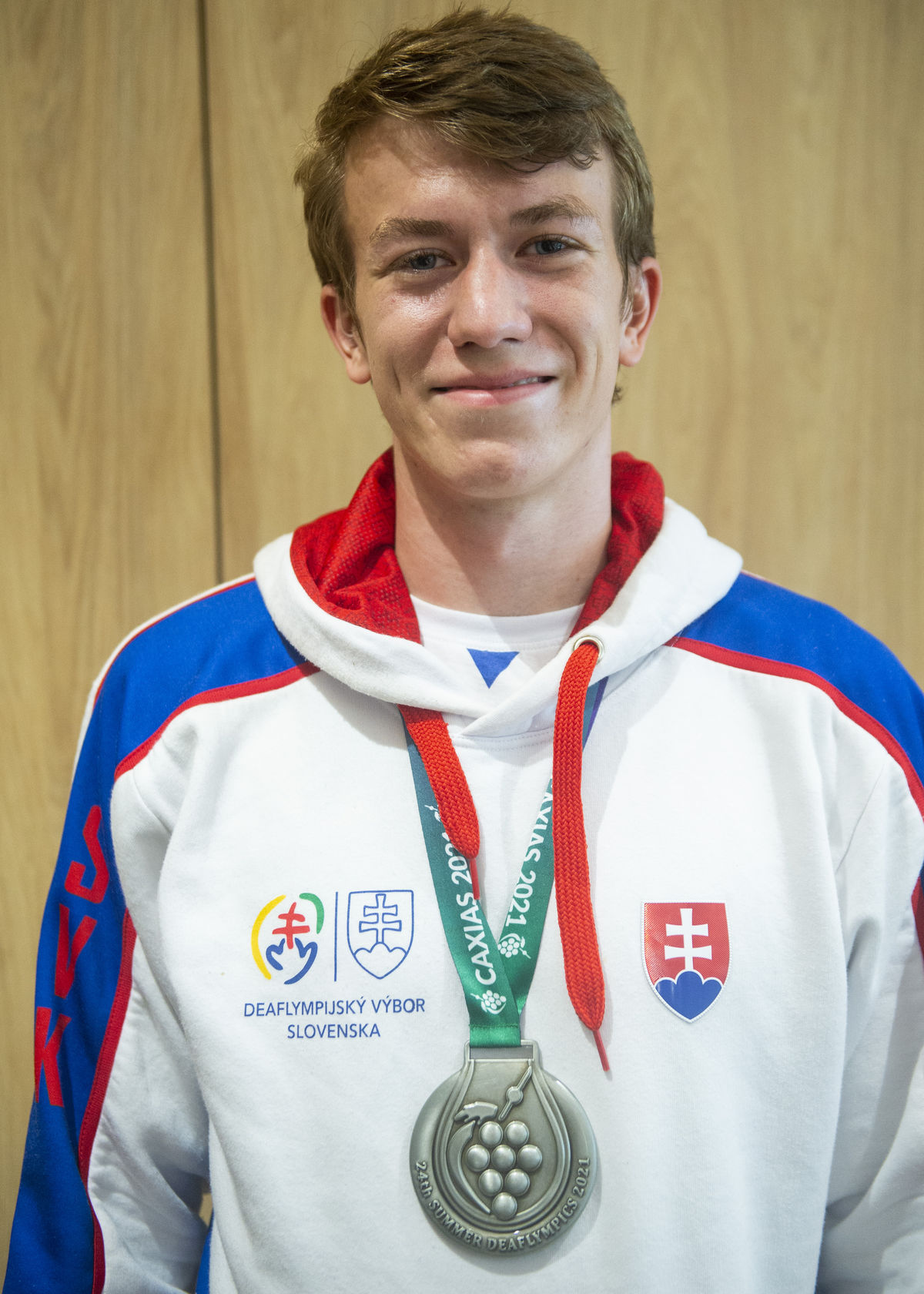“It was a difficult period that could have marked me. Gradually, however, I was able to cope with it,” said Jelínek in an earlier interview, who began to devote himself to athletics and compete with healthy peers. On the track, he has already tested his strength with the Slovak sprinter Ján Volko.
In 2018, he won three gold medals in the 100m and 200m races and in the long jump at the European Deaf Championships.
The year 2020 brought Jelínek several titles of champion of Slovakia in youth categories and an improvement of his personal record in the distance.
At the 24th Summer Deaflympics in the Brazilian city of Caxias, he won a silver medal in the long jump, and after returning to Slovakia, he enjoyed a ceremonial ceremony, during which he received a letter of thanks from President Zuzana Čaputová.
It was the way in which he was able to cope with bullying that hardened him and helped him overcome obstacles even in domestic and international races.
“I literally went to school to suffer. Then I ran quickly home to my activities,” Jelínek recalls.
He was greatly supported by his family and friends in extracurricular clubs.
System failed
The recent case of 15-year-old Romano, who committed suicide by jumping from the roof of the school in Parchovany in eastern Slovakia, testifies to the fact that schools do not have a well-established system to prevent bullying.
Jelínek also remembers similar cases that happened at his school. “I know of at least one girl who was bullied at our school and tried to take her own life. The case was also covered in the media. So it is obvious that the system failed there,” states Jelínek.
But he himself never thought of harming himself in any way. “It has never happened to this stage for me. Probably also because I had a lot of support from those closest to me.”
Although, like any other boy, he occasionally fought with his classmates, bullying did not have physical characteristics for him. His classmates made fun of him because of his handicap, and at the same time, it was difficult for him to bear the fact that after passing the English language tests, he moved from a non-selective class to a selective one.
SR Trnava Athletics SR TTX Championships Slovak athletes Rastislav Jelínek (left), Ján Volko (center) and Filip Federič during the 100-meter race at the Championships of the Slovak Republic in Trnava.
“It bothered some classmates. When they also found out that I was deaf, I was immediately a strange boy from the non-selective school for them,” said Jelínek.
The problems began to worsen when, in the third grade, his class teacher became seriously ill. After she was diagnosed with cancer, she had to leave school.
“Instead of her, a strict teacher came to us. She had nines in front of us and it was an incredible ax. It caused minor psychological problems for me, which I struggled with for some time,” admitted Jelínek.
His parents accepted when he told them that he didn’t want to go to school, and for his sake they left him at home. The turning point for him came in the fifth year, when he decided that it would be best for him to change schools. His love for sports weighed heavily in his decision.
He chose a sports gymnasium where he could fully develop his talent. The fact that he did well was evidenced by his academic and sports results. However, he did not forget all the bad things he experienced. Also due to him defeating his demons, it could have had a positive effect on him.
“It definitely moved me somewhere as a person. It made me who I became. It’s hard to say what it would have been like if I hadn’t experienced bullying. Maybe I wouldn’t have gotten into athletics at all,” thinks Jelínek.
He will become a programmer
He originally devoted himself to swimming, but from the age of twelve he switched to athletics. At first, he competed only among hearing athletes, but later discovered that he could also participate in international events for the deaf.
In Germany, he visited doctors who determined the extent of his handicap. At competitions, deaf people have to undergo two types of checks. In addition to doping, they are also tested with an audiogram.
 Photo: TASR/Jakub Kotian
Photo: TASR/Jakub Kotian
SR Summer Deaflympiad medalists return TK BAX Rastislav Jelínek with a silver medal after returning from the 24th Summer Deaflympiad.
“As part of the check, it is determined whether the athlete in question really does not hear as he states in the papers he submits before the competition.
The threshold is 55 decibels in the better ear, which is considered moderate hearing loss. For me, it turns out that I’m almost exactly on the border to be able to compete among the deaf,” explains Jelínek.
At the summer Deaflympics in 2022, he aimed to win at least one medal, which he finally achieved with silver in the long jump. Strength disciplines such as shot put, discus or javelin were never among his favorites.
“From the point of view of predisposition, I do mostly short running and long jump. Moreover, I enjoy it because I’m quite good at it,” says Jelínek.
In addition to studying computer science at the Technical University in Košice, he also continued to devote himself to athletics.
“If I don’t break both legs or arms, I will definitely train and compete. I firmly believe that there will be more successes.”
In addition to athletics, he also wants to devote himself fully to the IT sector and programming applications and games.
“It is a business that is very difficult to get into and even more difficult to stay there. I enjoy programming as such, and it’s also an industry where you can earn good money,” says Jelínek with a smile.
Source: sportweb.pravda.sk


